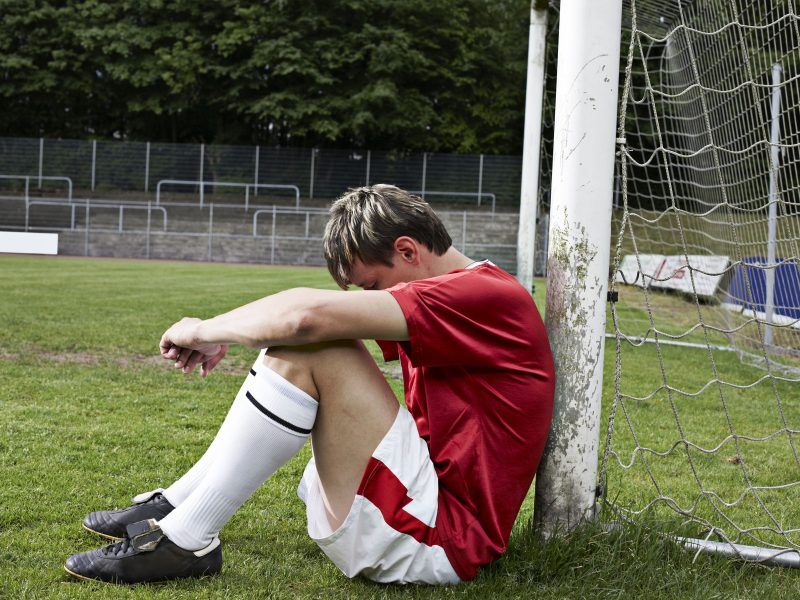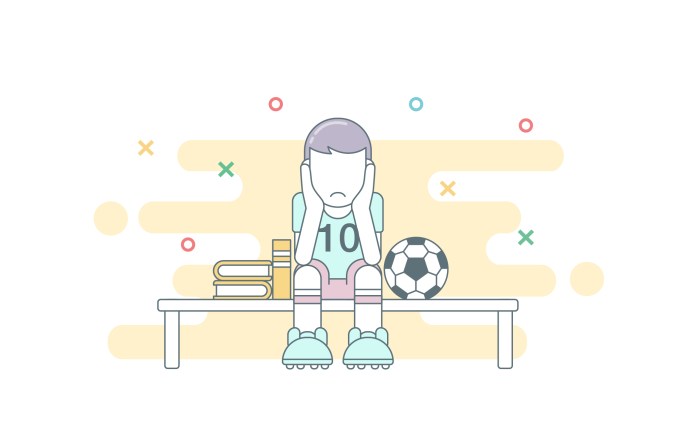Have you seen changes in your teen’s behaviour – highly strung, lashing out or a bad attitude?
Is your teenager avoiding you, feels the pressure, stressed out – and you don’t know how to manage their reactions?
Parenting teens is hard work – but I’m sure you’re well aware of that already! Did you know that school work, exams, studying on top of any additional activities outside of school, can all pile up and put a lot of pressure on kids and young adults?
Stop and have a think about your child…how many activities do they do after school? Are they striving to be their best at everything they do?
Teens can often be under an immense amount of pressure, and this pressure may come from their teachers, from their family, or they may also put it on themselves. Teens often are trying to meet the needs of what they think they should be doing.
An estimated 1.7 million (63%) children participate in at least one organised sport outside of school hours, and creative classes such as dance and music are in addition to this (ABS). That’s a lot of kids doing extracurricular activities!

Signs of Pressure
As a parent, you may see the signs of stress, but are unsure how to deal with the reactions and outbursts from your teen. Common reactions you may see are:
- Lashing out, yelling and reacting dramatically
- Withdrawal from family and activities
- Bad attitude, rudeness and speaking inappropriately
It’s normal as a parent to feel confused and unsure of the reason for these reactions. If a child is under pressure, it will come out at the wrong time. You may ask them to set the table for dinner, and they lash out at you. You’re probably thinking, what’s going on?
It’s often not that they’ve developed a bad attitude, it’s a misunderstanding of how they’re feeling, and how their brain is functioning. It’s challenging in the moment to take a step back and think about where the lash out may have come from. You may personally get upset or feel like it’s you – but it’s often not.
So, What’s Going on in their Brain?
As teenagers develop so does their brain, albeit at either a faster or slower rate. This disconnect between where the brain is at, and where the body is at (puberty!) causes distress for some teens. There is an expectation for them to start being independent, looking after themselves, and being responsible for their own activities – this put an immense amount of pressure on the teen when they are still trying to figure out their own identity, who they are and what they’re capable of.
When under frequent stress, the brain produces more cortisol than it is able to release. High amounts of cortisol in the brain can inhibit the functioning of your teen’s “thinking brain”. This is the part of the brain responsible for decision making and planning ahead. In low stress, the thinking brain is in charge. Thoughts switch ‘off’ stress. Your teens “emotional brain” kicks in when stress levels are high.
Your teenagers thinking brain is still developing as they get older, into their 20s. For boys, this area is not fully developed until the age of 26! This is particularly important to understand when we have high expectations of our children to make sensible decisions, and become independent.
How can you help your Teen?
- Show compassion and appreciation for the immense pressure that your child may be under.
- Take some time to learn and understand the ‘attitude’ of your child towards their responsibilities – are they perfectionistic, or do they tend to avoid things?
- Prioritise what is enjoyable for your teenager. Ask your child if they’re enjoying the activity anymore, or are they just doing it out of comfort? Ask them to name 3 things they really enjoy about it. This opens the lines of communication. Find a balance.
- Talk to them about self-pressure. If you’re not putting pressure on them, is it coming from within? Ask them why they feel the need to perform at a high level all the time?
- Teach your teen to study smarter, not harder. Spend less time re-reading notes, and instead use active study and revision to cut down on after hours school work.

It’s important to give your teen the space and downtime they need to unwind from their own pressures, before adding ‘home pressures’ to the long list, e.g. chores, family events. Speak to your teen about introducing a balanced lifestyle as a means to feel more calm, confident, and in control.
How to speak to your Teen
- Ask more specific questions. Instead of “How is school going?”, ask more specific, supportive questions, e.g. What subjects did you have today, and were you given anything specific to do at home from your teachers? Is there anything you’re not sure of, or that I can help you work through?
- Schedule once a week to check in with your teen. Speak to them about how that week has been for them. Chunk it down into smaller timeframes.
Written by Provisional Psychologist Rickii Lotsaris – www.creatingchange.net.au


